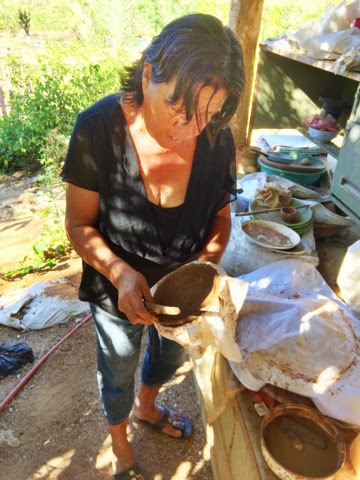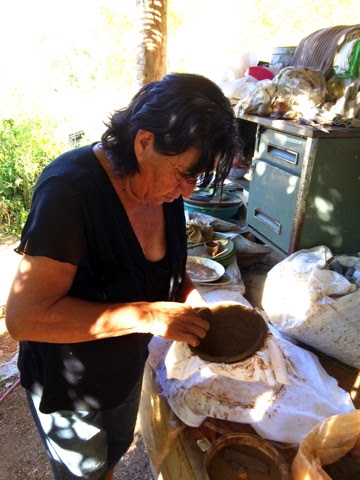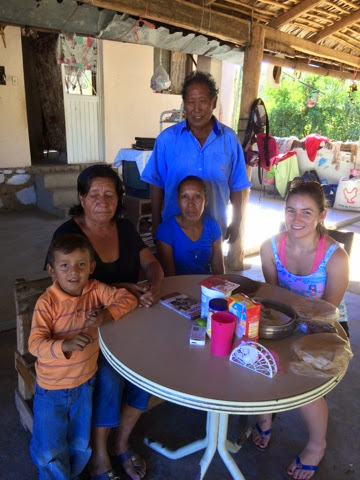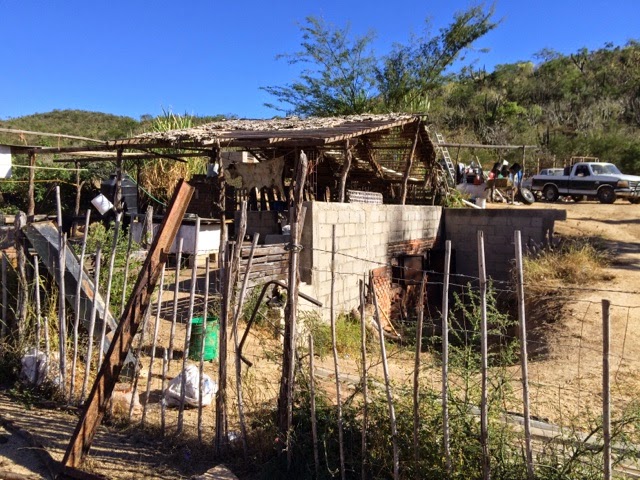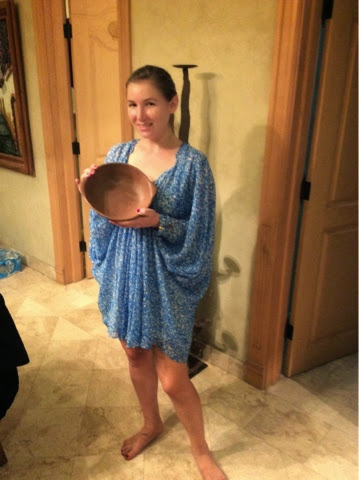PGetting to Candelaria was not for the faint of heart as discussed in #1. But the real experience was just about to begin.
We stopped to ask where we could find Ms. Hanken, an American who was the person to see regarding the “ranchware” pottery we were seeking to learn about. No one spoke English. We were told that she was not in town, but on a trip to La Paz and will be back on Monday.
Oh no, we had come all this way to see her and now she wasn’t even here!
I asked if anyone else in town made the Clayware we were looking for. She said Carmen did, and she lives just up the road.
So we go looking for Carmen. We stop at the first yard that is fenced – sort of. Three dogs immediately come running to our car, barking like mad. I call out from the car for Carmen. An older woman acknowledges my call out. She nods her head. Haltingly I get out of the car and walk very slowly and gingerly up the path to a concrete slab that was outside of a hut/home seemingly made out of mud.
I explained what we were looking for and why we were here. She said that yes she made the Clayware and that she could teach Kelsey and me. I called to Kelsey in the car and motioned for her to come up to meet Carmen.
All conversations were in Spanish. I wish I could say that I understood everything that Carmen said, but we were able to communicate. We started using our hands as we kneaded the pottery material into clay, and then we pinched, pulled and punched the material into pre-designed shaped forms. This took quite some time.
Carmen was very patient with us, and especially me. She smiled several times as she watched us attempt to look like we knew what we were doing.
The shallow bowls that we were making needed to have rims which required a coiling technique which was challenging.
Once we had the basic shape and rim somewhat finished then we needed to smooth the surfaces. This was done with a little bit of water and tool made out of a cow’s rib.
We were finished with making the piece. Now the bowls are left to dry naturally. Carmen gave us small smooth stones for us to use to trowel and polish the bowls to create the aesthetic result one is looking for.
While all this is going on outside of her home, we got a chance to meet her daughter, husband, and grandson Antonio. Antonio is four years old and just starting two hours a day of school. He was so proud of his school backpack. His favorite toy was a string tied into a circle with eight of the can openers from soda cans.
We learned how this rustic pottery is made. But more importantly we got a chance to have a small but meaningful interaction with real people living in a very poor, rural environment. And perhaps, even more importantly, we learned that the trip to Candelaria was worth everything we went through.
